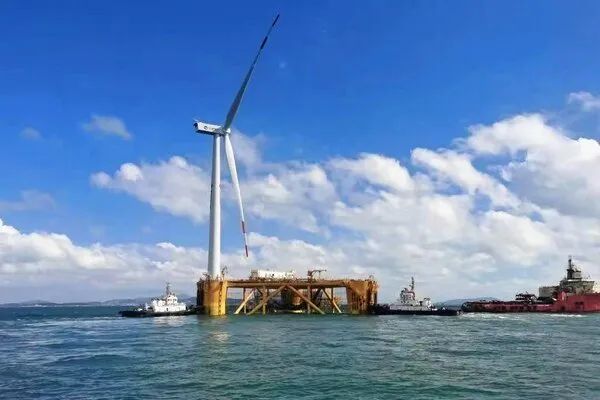'Historic growth' ahead in global wind despite Chinese offshore challenges and US upheaval
Global wind power additions to break records that neither end to US tax credits nor obstacles to wind at sea in Asian giant can derail, Wood Mackenzie report shows

Neither the US policy upheavals nor challenges to offshore wind in China will be able to derail the “historic growth” in the global wind market, which is set to reach record-breaking growth this year, Wood Mackenzie said.
The report forecasts that the industry is poised to add its second terawatt of capacity by 2030, just seven years after reaching its first terawatt of capacity in 2023.
Growth once more is driven by China, but even without the Asian giant global cumulative wind capacity is expected to reach 1TW in 2031, with worldwide capacity doubling from 2024 levels by 2034.
“China’s dominance in the wind industry is becoming more pronounced," Wood Mackenzie research analyst Sasha Bond-Smith said.
"While other established markets struggle with policy uncertainty and economic headwinds, we're witnessing an unequalled concentration of growth in China that's reshaping the industry landscape.”
China’s onshore wind forecast rose significantly this year, the report found, driven by data centres and demand for electrification on the heels of the country’s decarbonisation targets.
But offshore wind in China faces considerable challenges, with sea-use conflicts severely disrupting project timelines and halting construction even for projects already underway, WoodMac cautions.
Fundamental US restructuring
This has weakened the outlook for the US sufficiently to drop below that of India and Germany in 10-year additions, the analysts forecast. The policy shift forces developers to reassess project viability based on market fundamentals such as power demand growth and competitive positioning against other technologies, WoodMac concluded.
The global wind market outside China and the US nevertheless shows stability, with onshore wind keeping steady growth whilst persistent headwinds undermine offshore development. Wind projects on land continue to progress in Europe, Asia Pacific and emerging markets, supported by tender results and robust project pipelines, the analysts stress.
"The wind industry’s most significant transformation in decades continues to unfold," said Kárys Prado, senior research analyst at Wood Mackenzie, but cautioned that “success will depend on how effectively the industry navigates this new geography of growth and adapts to evolving policy landscapes.”
Slowdowns in green hydrogen markets limit related upside potential for wind, though, the report cautions.
Also, in wind at sea, elevated costs and tender failures are constraining development across multiple regions, the report said.